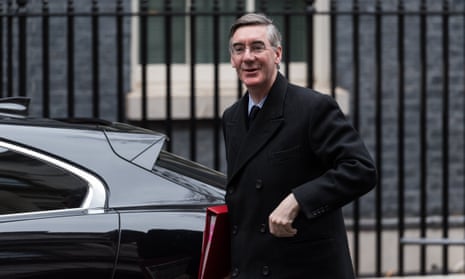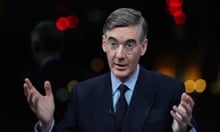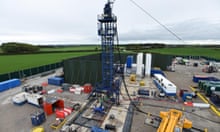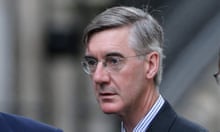The parliamentary commissioner for standards has begun a formal investigation into Jacob Rees-Mogg after a complaint from Labour that he failed to declare that he received £6m in cheap loans from one of his companies.
The website for the commissioner, Kathryn Stone, has been updated to show that Rees-Mogg, the leader of the Commons, is among MPs being investigated. It says the inquiry concerns the section on rules for MPs connected to the declaration of employment and earnings.
The website also shows Douglas Ross, the Moray MP and leader of the Scottish Tories, is being investigated. Ross apologised earlier this month and referred himself to the watchdog for failing to declare his pay as an MSP and as a part-time football referee.
Rees-Mogg did not report to the official register that he received director’s loans from Saliston between 2018 and 2020.
The North East Somerset MP owns Saliston, even though he gave up his directorship in 2019. It has a stake in Somerset Capital Management investment company.
Rees-Mogg says the loans were mainly used as “temporary cashflow measures” to pay for a property purchase and refurbishment, and did not need to be declared.
But Thangam Debbonaire, the shadow leader of the Commons, said it was right that the commissioner was investigating “what appears to be yet another egregious breach of the rules”.
She called for a parallel inquiry into whether Rees-Mogg had breached the ministerial code, which governs conduct for ministers.
“Over the last few weeks, we have seen that Conservative MPs repeatedly act as if they can put their own private business interests ahead of their constituents and the prime minister must put a stop to this,” Debbonaire said.
Accounts for Saliston show the £6m in loans – £2.94m in 2018, £2.3m the following year and £701,513 in 2019-2020 – attracted interest paid at the equivalent of about 0.8%, which is below market rates.
The accounts list the loans as attracting interest rates of 2.5% and 3.5% in individual years, raising the prospect that he could have borrowed the money and repaid it over short periods of time.
The MPs’ code of conduct does not specifically cover director’s loans but it states: “Members shall fulfil conscientiously the requirements of the house in respect of the registration of interests in the register of members’ financial interests. They shall always be open and frank in drawing attention to any relevant interest in any proceeding of the house or its committees, and in any communications with ministers, members, public officials or public office holders.”
The wider issue of MPs’ conduct and outside interests, and the way these are publicly declared, has been in the news since the furore over Owen Paterson’s punishment for breaching lobbying rules, which Downing Street initially sought to overturn.
Labour has proposed a new system that would ban almost all second jobs for MPs, while the Commons standards committee, which is separate to Stone’s role, has recommended changes, including greater clarity on MPs’ and ministers’ interests.
In a statement released when the Labour complaint was made, Rees-Mogg said: “Saliston is 100% owned by me and this is declared clearly in the Commons register and to the Cabinet Office. It has no activities that interact with government policy.
“The loans from 2018 were primarily taken out for the purchase and refurbishment of 7 Cowley Street as temporary cashflow measures. All loans have either been repaid with interest in accordance with HMRC rules or paid as dividends and taxed accordingly.
“The register asks for earnings, not loans, which is why I was declared an as a non-remunerated director until I resigned on entering government. Loans are not earnings and are not declarable in the register of interests.”










